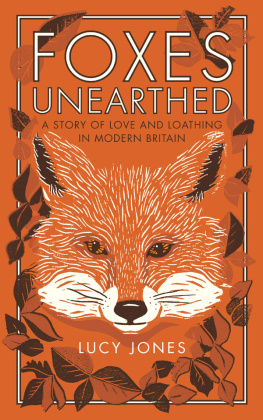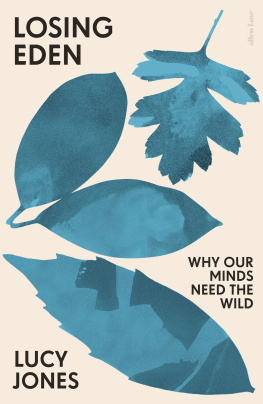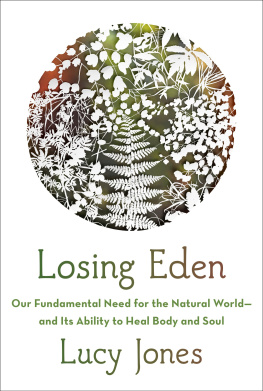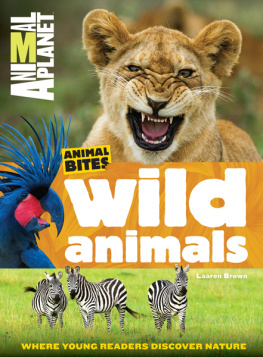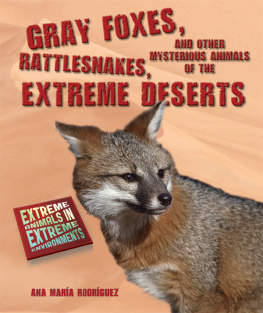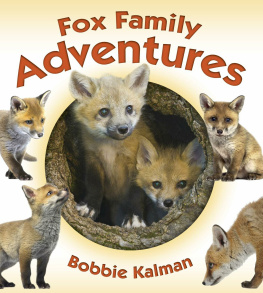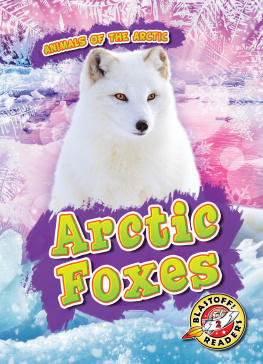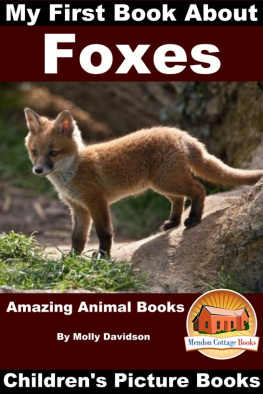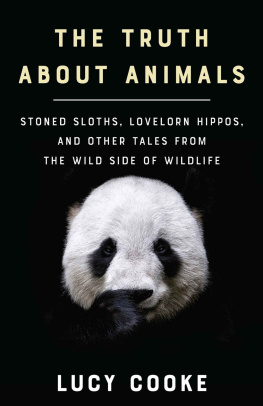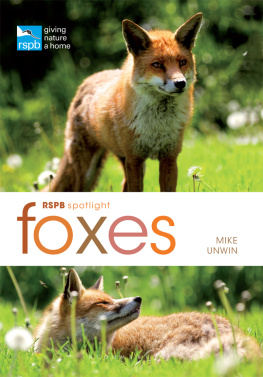A sensitive and illuminating investigation into our complex and ever-evolving relationship with the most intriguing, incredible and intractable of British mammals. Through a keen eye and bright prose, Jones traces the trail of the fox through history, myth and current debates, exploring the roots of our love and hate from all perspectives. This is a beautiful book that will change the way you think about the fox, whatever you think about the fox
ROB COWEN, author of Common Ground
A fantastic tour of the fox and us Lucy Jones takes an intelligent, measured and humane look at the intimate, contradictory and occasionally crazy relationship between Homo sapiens and Vulpes vulpes
PATRICK BARKHAM, author of Badgerlands and The Butterfly Isles
A foxy little book, offering a rich brew of nature and history and culture. An exemplary instance of fine research leading to balance and sanity on a subject usually lacking in either. Deeply enjoyable and informative
SARA MAITLAND, author of Gossip from the Forest: The Tangled Roots of Our Forests and Fairytales
Lucy Jones investigative study explores the romantic myth and harsh reality of the fox with the unflinching rigour of a true journalist and heart of a poet
BENJAMIN MYERS, author of Beastings and Pig Iron
Brave, bold and honest finally the truth about foxes
CHRIS PACKHAM, broadcaster and naturalist

Contents
Prologue
O f all the mammals in Britain, it is the fox that has cast its spell on me. I find it, as one of the largest predators left in our islands, a captivating creature: a comfortably familiar figure in our country landscapes; an intriguing flash of bright-eyed wildness in our towns.
It is an animal that is often surrounded by myth and controversy, and my own experiences of the fox have proved just as complicated and conflicting. Traditionally, one side of my family had a fondness for hunting particularly my late grandfather, whom I adored, admired and respected. In my early years, fox hunting was an accepted part of life. It was only as I grew older, and my own partiality for the fox began to emerge, that I started to question the activity. The fox, in my experience, has always been more than just a wild animal. He is a character, an emblem, a flint for emotions and ethical questions; in short, he poses something of a quandary for us here in Britain, in both town and country.
As a reluctant city-dweller, Im no stranger to glimpsing foxes on our streets as townies we may not have otters or hares or ptarmigans or capercaillies, but we do have Vulpes vulpes in abundance. It had been a while since Id spotted one, though, and I decided to walk through Walthamstow Marshes in London, the nearest large green space to my home, to see the animal in action. The area is a biodiversity hotspot, home to flowers, plants, insects and voles. Two pairs of kestrels had moved in, and they hovered and dived like feathered meteors into the marshlands.
To up my chances, I turned to Fox Watching by Martin Hemmington, a practical guide for would-be ecologists. First, keep eyes and nose peeled for hair, droppings, paw prints and the smell of urine. Second, wear camouflage clothes with black or brown shoes. Third, bring binoculars, writing equipment and dinner. Fourth, patience is essential. I left the house before dusk armed with new knowledge and a slice of spinach pie in my pocket. As the air cooled, the scent of the marshes intensified. Large slugs with patterned backs slithered in scores across the path food for foxes, if they fancied it. The lights of a train lit up the trail as I walked into the undergrowth, looking for vulpine scat and hoping a fox would cross my path.
As it turns out, though, foxes can be elusive creatures when youre in active pursuit, and my search proved frustratingly fruitless that night, as did many that followed. For some reason, our paths were just not crossing. I was beginning to think the fox population in our cities was being grossly exaggerated.
When I finally did stumble across a fox, it was completely by accident. I was ambling home through busy, built-up Stoke Newington, my mind elsewhere, certainly not on foxes. And suddenly, there it was. It emerged gingerly at first, peeking through the railings of a railway bridge. Standing on the pavement by a busy crossroads at around eight oclock in the evening, close to shops, restaurants, pubs and houses, it waited for the traffic to clear, its head turning back and forth, eyes following the cars, ears pricked. Its brush was long, full and rich, slightly darker than the rest of its pelage, and turned up at the end at a jaunty angle. It crowned a long, lithe body, its wintry fur coat a rusty, burnt ochre. The fur on its throat was white, giving the impression it was wearing a bib. We made eye contact; it looked intelligent, curious, for the most part nonchalant. Its eyes were an amber gold, lit up by the headlights, expressionless and cool. Around the muzzle and those sharp teeth, the fur was white. I wanted to get closer but, wary of spooking it, hung back to keep it in my sight as long as possible. It soon trotted off and vanished through the gate of an apartment complex.
Even though Id seen lots of foxes over the decade Id lived in London, I experienced a jolt; a pure, chemical thrill. Various associations rushed through my head memories of taxidermied fox heads in my grandparents house, Fantastic Mr Fox, the vulpine psycho killer of a recent news report, Ted Hughess bold and brilliant Thought-Fox and I felt excitement, wonder, surprise. Yet I knew my reaction wouldnt have been universal.
When you see a fox, what do you feel? More than any other animal in Britain, the fox can elicit a cocktail of opinion and emotion. It is rarely a blank canvas. Perhaps you see the fox as vermin, a pest to be shot as quickly as possible, a rude interloper who doesnt belong in the human space. Perhaps you see a beautiful wild animal or a cute pet to be fed. Or perhaps you see a cunning rogue waiting to be hunted. You might feel annoyed if a fox once killed your chickens or your pet tortoise. You might feel elated to witness the largest British carnivore so casually on a street corner. You might even feel a little frightened, a natural response to coming face to face with what is still a wild animal.
In his book Arctic Dreams, Barry Lopez remarked vividly on the sensation of humananimal collision. Few things provoke like the presence of wild animals. They pull at us like tidal currents with questions of volition, of ethical involvement, of ancestry, he wrote. The currents that exist around the fox in Britain are powerful, old and complex. They have combined to create an enigmatic character, rarely perceived for what it actually is.
The fox has come to represent a thorny and emotive array of concepts to different people: from liberty to beauty, class to cruelty, hunter to hunted, pin-up to pest. In no other culture but Britains is the animal so polarising and so complex a public figure, perceived ambiguously by its human neighbours, on both a local level and in national debate. No other creature in Britain has provoked or inspired more column inches, literary characters, pop-culture symbols, parliamentary hours, lyrics, album covers, cartoons, nicknames, pub names, jewellery, tea coasters, cushion covers, Facebook fights, hashtags, demonstrations, rallies, words and sheer cortisol than the fox. Former prime minister Tony Blair described the passions aroused by fox hunting as primeval. If Id proposed solving the pension problem by compulsory euthanasia for every fifth pensioner Id have got less trouble, he wrote in his memoirs about the row over Labours Hunting Act, which banned hunting wild mammals with dogs.
Next page
